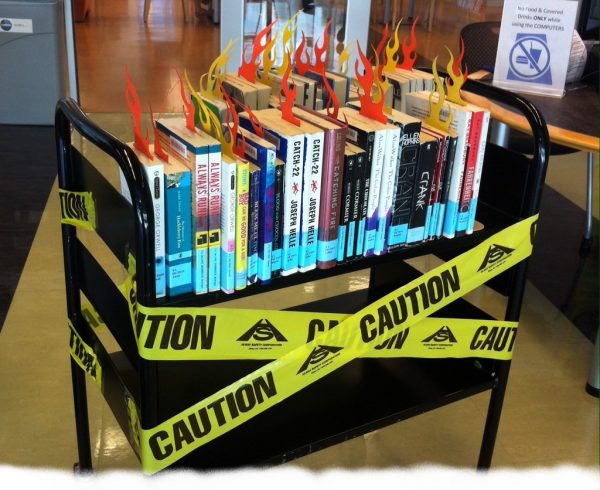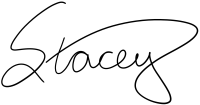I Read Banned Books

5 September 2019 | Theme: Quiet | 5-Minute Read | Listen
Yesterday on social media, I learned that the children’s book I reviewed last month, Red: A Crayon’s Story by Michael Hall, is on a list of 32 LGBTQ books targeted for censorship.
Although the original post was by a mother who ranted that other parents should “march down there and demand to see if any of these have found their way into the book selections,” my friend who reposted said, “Thanks for the resource list.” My friend apparently agreed with Clare Booth Luce when she said, “Censorship, like charity, should begin at home; but unlike charity, it should end there.”
In my initial reading of Red, I didn’t see it as an “LGBTQ book,” whatever that even means. I saw it as a book that affirms the central character’s true nature—perhaps not being seen as an artist, musician, or scientist, and being expected to live in a preconceived notion of his identity. But if you want to read sexual orientation or gender identity into that, well, that’s OK, too. Sexual orientation and gender identity are part of who we are as human beings, and like crayons in a box, there is a whole spectrum.
One thing that bothers me (and there is much that bothers me about censorship) is that, out of fear and narrow-mindedness, people want to shut down ideas that make them feel threatened. They are threatened by that which they don’t understand, so they want to silence it. But banning books means that they’ll never understand.
So I’ll put it in numbers so that we all can understand: youths who identify as lesbian, gay, bisexual, transgendered, queer, questioning, and other are 5 times as likely as heterosexual, cisgendered peers to attempt suicide, according to the Trevor Project. If their family is unaccepting, they’re more than 8 times more likely to try to take their own lives. Even more startling: each incidence of physical or verbal victimization more than doubles the risk of suicide. According to Youth.gov, LGBTQ youth are also at greater risk than their peers for substance abuse, depression, and anxiety, especially when they face bias, discrimination, and family rejection.
On the other hand, when kids see in books families, skin tones, characters, and situations that reflect their own lives and struggles, they gain hope that they are seen and valued. They realized that they are not alone.
So the books that are written to affirm them are written to save lives. Period.
But fear of “otherness” causes many people to want to ban the very books that could save lives. Lack of awareness or understanding causes them to put the lives of vulnerable young people at stake.
This is the time we live in: the internet has the capability of expanding knowledge and bringing the world into our living rooms, but it also can be used to create our own narrow echo-chambers where our viewpoints are never challenged. Charles Tumiotto Jackson states that online algorithms filter the content to which we are exposed so that 95% of what we see online is material we want to see. Even when we think we’re “actively” looking for information, we are passively receiving curated content all but 5% of the time!
What this means is that we filter our input, often without realizing it. In the days of the four major networks—CBS, NBC, ABC, and PBS—we tuned into whatever was airing. It was a narrow selection, and yet, ironically, we were more likely to be exposed to a point of view which differed from our own. And because other people at work and school had most likely tuned into the same shows, we had conversations about the content. We learned the art of civil discourse.
Now, with huge search engines, Netfix, and social media, we gravitate only to online content that reinforces our point of view—or complex algorithms do that for us—and others do the same, so that we may never have to encounter ideas that feel foreign to us. We are losing our ability to talk about things that make us uncomfortable. The thing is, without discomfort, there is no growth.
I learned long ago the power of not only allowing, but seeking out that which differs from our own view. I recall seeing my father watch a program with a religious viewpoint that was quite opposite his own. “Dad, what are you doing?” I queried. “This isn’t what you believe!”
He looked at me thoughtfully for a moment and responded, “How will I know what other people think if I never watch what they watch? I want to know how and what they think. I don’t have to agree with it—but I should at least know.”
The books that end up on banned-books lists are there because somebody doesn’t want to know, and because they don’t want to know, they don’t want others to know, either. If they can silence books, they can silence ideas and perspectives that make them feel threatened.
I encourage you, Dear Reader, to seek out a banned book. You don’t have to agree with it—in fact, choose one with which you don’t agree—and read it. What about it makes you uncomfortable? Is this an area for growth? Is it triggering a response that’s based in old stories or lack of understanding? Delve into those stories, without judgment, and see them for what they are. Lean into the discomfort of challenging your old paradigms.
And then take heart, for, as Alfred Whitney Griswold said, “Books won’t stay banned. They won’t burn. Ideas won’t go to jail. In the long run of history, the censor and the inquisitor have always lost. The only sure weapon against bad ideas is better ideas. The source of better ideas is wisdom. The surest path to wisdom is a liberal education.”
Until next time,

Resources:
Jackson, Charles Tumiotto. “The Internet is Making Us Narrow Minded.” Medium, 30 Dec 2018. https://medium.com/@charlestumiotto/the-internet-is-making-us-narrow-minded-76300c83e8bd
“Mental Health and Suicide.” Youth.gov. Online. 2019. https://youth.gov/youth-topics/lgbtq-youth/health-depression-and-suicide
“Preventing Suicide: Facts About Suicide.” The Trevor Project. 2019. https://www.thetrevorproject.org/resources/preventing-suicide/facts-about-suicide/
If you enjoyed this article,
please share on social media!
NEXT ARTICLE

Quiet Time to Recover
12 September 2019 | Theme: Quiet | 10-Minute Read